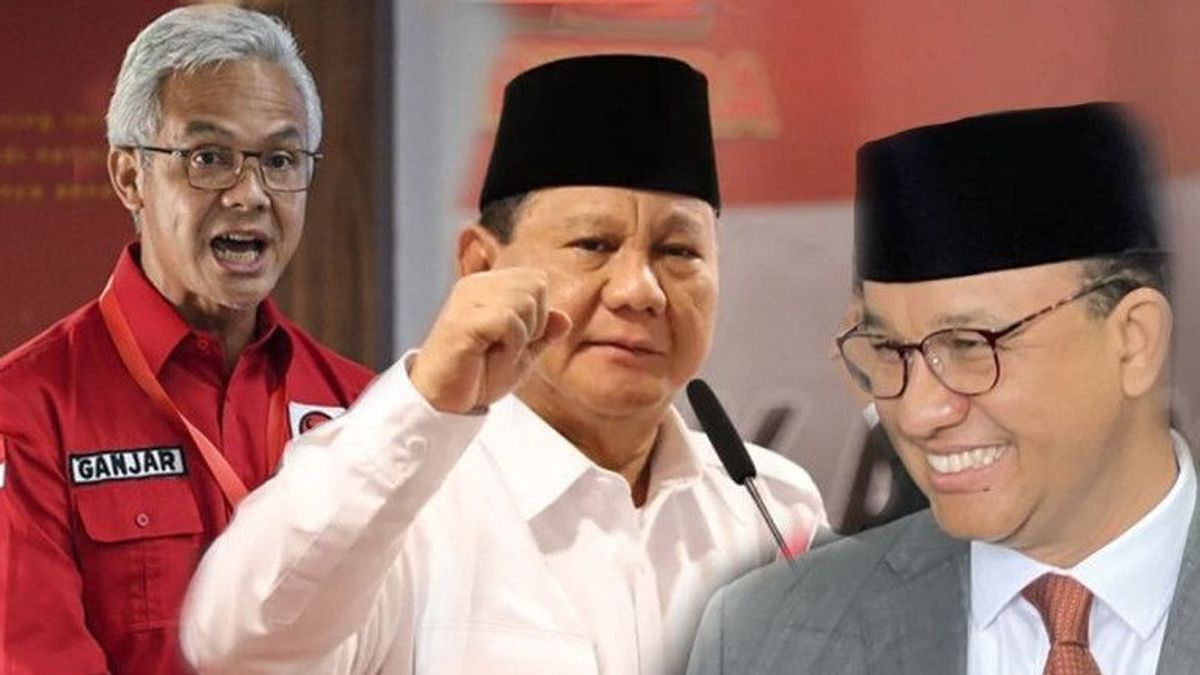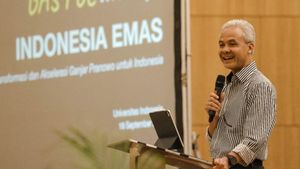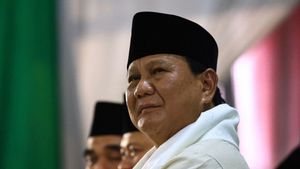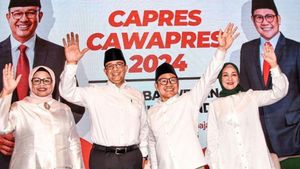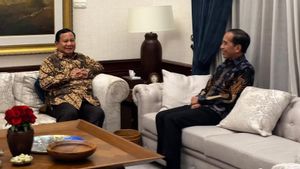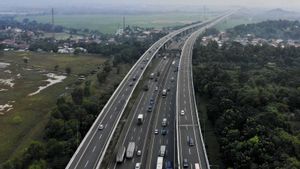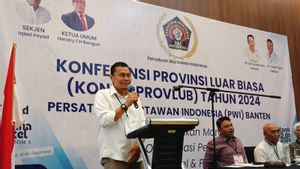JAKARTA "The time is getting closer before the 2024 General Election, three presidential candidates (Readpres), namely Anies Baswedan, Ganjar Pranowo, and Prabowo Subianto, have begun to make promises if they are elected president. The three presidential readings have a row of programs to carry out, but they have one thing in common.
Both Anies, Ganjar, and Prabowo are united to maintain food security which is indeed the basic needs of the community. Although both focus on food security, the three presidential readings have different strategies to achieve it.
Anies Baswedan, for example, promised equality of basic needs. This means that the former Governor of DKI Jakarta wants stable food needs prices. Meanwhile, two other presidential readings, Ganjar and Prabowo, have almost the same promise, namely continuing President Joko Widodo's program related to food security.
Food is a basic need for mankind that must be met at any time. Therefore, whoever the president is, food security is always the focus. As a basic need and one of human rights, food has a very important meaning and role for the life of a nation. When food availability is smaller than its needs, it can trigger economic instability.
The understanding of food security itself is stated in Law Number 18 of 2012 concerning Food. The law states that Food Security is a condition of fulfillment of food for the state to individuals, which is reflected in the availability of sufficient food, both in number and in quality, safe, diverse, nutritious, feeling, and affordable and not contrary to people's religion, beliefs, and culture, to be able to live a healthy, active, and productive life in a sustainable manner.
However, there are a number of big challenges that must be faced to achieve food security as suggested by these presidential readings. As stated by Agricultural Observer of the Indonesian Political Economy Association (AEPI) Khudori, to achieve food security, a long-term program is needed.
Indonesia's biggest challenge in achieving food security is how to stop imports of foodstuffs. The reason is, Indonesia's food needs are actually very dependent on the imported market. Wheat, soybeans, sugar, milk and corn depend heavily on imports, even though Indonesia is called a fertile country.
Data from the Central Statistics Agency (BPS) shows that the value of imports has consistently increased in the 2020-2022 period, especially for food and live animals, beverages and tobacco, and fats as well as animal and vegetable oils.
"How do you reduce imports? One of them is by increasing the capacity of domestic commodities," said Khudori during a conversation with VOI.
The consumption of rice per capita which is high, around 114.6 kg per person per person per year, is not proportional to the availability of land. For information, Khudori mentioned that the food area per capita in Indonesia is very small, only 0.089 hectares. This figure is still below other ASEAN countries, Thailand and Vietnam, and is far behind Australia.
In addition to import problems, Indonesia's food security is also constrained by distribution. Because according to Khudori, the availability of food owned is actually more than sufficient as long as it is distributed properly.
The supply that we have is actually abundant, much more than sufficient. If this is well distributed, if this availability is divided into all mouths that need it, then there is no shortage of food, no malnutrition, no stunting. But what happened is not so," said Khudori explaining.
In fact, when nutritious food is not well distributed, it has a big impact on life.
This is not an easy challenge. When residents do not get enough nutrition, the impact will continue until productive age. You could say this is like a vicious circle. People who are poor lack of nutritious food, cause cases of malnutrition, then after growing up at productive age become sick, "he said.
Food estate or food barn is said to be the answer to achieve food security. But the fact is, since thefood estate program was first launched in 1970 in the era of President Suharto, then the era of President Susilo Bambang Yudhoyono in 2010, until President Joko Widodo is currently afood estate program, it can be said that it failed.
Khudori said,food estate can actually be successful and has the opportunity to fulfill food security with several notes.
First, thefood estate must be intended to increase land per capita. With the increasing consumption needs, the addition of land per capita absolutely must be done.
Second, thefood estate program is also needed to shift the food production base from Java to outside Java. This is because Java is the center of growth, so that land, which was originally agricultural land in Java, is converted. The conversion of agricultural land in Java must have happened, even though it is a source of food production.
"Third, thefood estate is not monocultural because it violates nature, even though Indonesia has extraordinary diversity," said Khudori again.
Finally, thefood estate program is believed to be successful if it is accompanied by adequate innovation and infrastructure. To increase the opportunity for the success of thefood estate, Khudori also mentioned the need for collaboration between the central government and the local community. Because basically, local residents have adapted for decades to the conditions where food barns are being carried out.
If thefood estate program is carried out using technology that is commonly used in Jakarta, it is not certain that local farmers can do it, it is not necessarily suitable. To run afood estate program, it is better to consider sociological aspects and the local environment. Don't ignore this aspect," said Khudori.
In closing, Khudori said that achieving food security would be very difficult considering the challenges the president would face later. He said the food estate program was a long-term program that could not be successful in a short time.
"At least one presidential term. It cannot be pursued by working, working, working and succeeding like magic. Production on this land is different from controlling manufacturing production. Products on land have many variables that cannot be controlled. Therefore, the food estate program must be placed in a medium-long context," he concluded.
اقرأ أيضا:
The English, Chinese, Japanese, Arabic, and French versions are automatically generated by the AI. So there may still be inaccuracies in translating, please always see Indonesian as our main language. (system supported by DigitalSiber.id)
